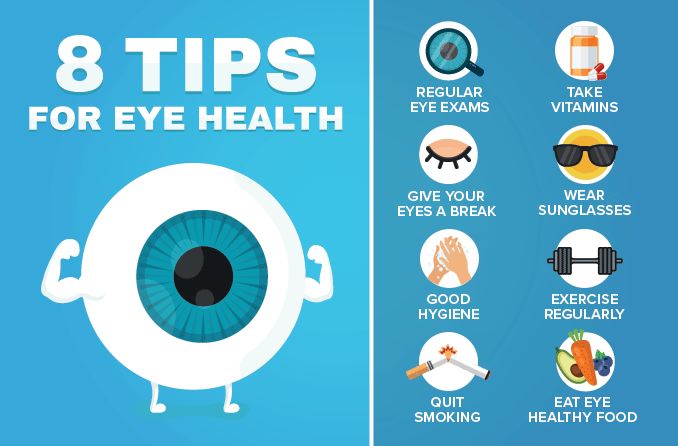Andalusia Pediatrics: Exceptional Take care of Children's Health Demands
Andalusia Pediatrics: Exceptional Take care of Children's Health Demands
Blog Article
Is Refractive Surgery Right for You? Elements to Take Into Consideration for Better Eyecare
In the world of eye treatment, the decision to undergo refractive surgical treatment is a substantial one that requires thoughtful factor to consider. From the ins and outs of one's eye health and wellness to the ins and outs of everyday routines and personal expectations, each facet holds value in the more comprehensive landscape of refractive surgical procedure candidateship.
Eye Health And Wellness Examination
When taking into consideration refractive surgical procedure, a thorough eye wellness examination is essential to assess the viability of the treatment for every individual. cardiologist andalusia. This analysis includes a series of assessments and tests conducted by an eye treatment expert to determine the total health and wellness of the eyes, the presence of any kind of underlying conditions, and the security of the refractive mistake
During the evaluation, numerous aspects are taken into consideration, such as the individual's case history, current eye prescription, corneal density, pupil dimension, and tear film high quality. These assessments aid to determine any contraindications to refractive surgical procedure, such as corneal irregularities, cataracts, or untreated eye infections. Furthermore, the evaluation assists to manage individual assumptions relating to the potential results of the surgical procedure based upon their unique eye attributes.
Ultimately, the eye health examination is essential in guaranteeing the security and performance of refractive surgery, as it provides important understandings into the individual's eye health status and assists identify one of the most ideal therapy alternatives for achieving optimal visual outcomes. (andalusia pediatrics)
Way Of Life Evaluation
A thorough way of living analysis is essential in establishing the suitability of refractive surgical procedure for an individual's aesthetic modification needs. Way of living elements such as occupation, pastimes, and daily activities play an essential function in the decision-making process relating to refractive surgical procedure.
Moreover, way of life routines such as sports participation, outdoor activities, or even skin care regimens can affect the recovery procedure and general success of refractive surgical treatment. By carrying out a thorough way of living evaluation, eye care experts can tailor their recommendations and treatment plans to satisfy the special requirements of each individual, inevitably leading to boosted aesthetic outcomes and complete satisfaction.
Expectation Positioning

Establishing practical expectations entails comprehensive pre-operative conversations between the individual and the ophthalmologist. The doctor ought to transparently connect the potential threats, benefits, and restrictions of the treatment (neurologist andalusia). Patients need to understand that while numerous people achieve 20/20 vision or far better adhering to refractive surgical procedure, some might still need glasses for certain activities like reading or driving at evening. Managing these assumptions assists stop dissatisfaction and frustration post-surgery, bring about a much more favorable total experience for the individual.
Threat Evaluation

Aspects that might raise the risk of difficulties include age, certain clinical problems like autoimmune conditions, unpredictable vision prescription, thin corneas, and impractical client assumptions. In addition, choosing a skilled and experienced surgeon, complying with pre and post-operative care directions faithfully, and divulging any type of relevant case history can aid mitigate threats.
To minimize the likelihood of problems, ophthalmologists conduct comprehensive pre-operative evaluations to determine any contraindications to surgery. They likewise discuss the possible threats and advantages with patients during try this site the examination process. By taking part in open communication and shared decision-making, both the ophthalmologist and the patient can collaborate to establish if refractive surgical treatment is the right choice based upon private danger profiles and preferred results.
Assessment Significance
Taking into consideration the essential function of informed decision-making in evaluating threats and potential problems in refractive surgical procedure, the appointment process holds considerable value in assisting clients towards see page optimum results. During the consultation, the ophthalmologist assesses the patient's eye health and wellness, refractive errors, and overall viability for surgery. This first assessment is important in determining the most suitable treatment for each individual, taking into consideration elements such as corneal thickness, pupil size, and existing eye conditions.
In addition, the consultation works as an opportunity for patients to discuss their assumptions, worries, and any concerns they may have relating to the surgical treatment. Clear interaction in between the individual and the specialist is necessary to ensure reasonable assumptions and a thorough understanding of the possible dangers and benefits entailed.
Furthermore, the appointment permits the surgeon to discuss the different medical options offered, their corresponding results, and the post-operative care called for. This thorough discussion encourages individuals to make well-informed choices regarding their eye care, resulting in better satisfaction and outcomes post-surgery.
Conclusion
In final thought, people considering refractive surgical treatment should undergo a detailed eye wellness examination, assess their way of living routines, align their expectations with potential outcomes, evaluate the associated dangers, and focus on assessments with eye care specialists. These factors play a crucial role in establishing the viability of refractive surgical procedure for each individual, guaranteeing optimum outcomes and additional hints contentment with the treatment.
Patients thinking about refractive surgery often have high assumptions pertaining to the end results, expecting perfect vision without the demand for glasses or call lenses. While refractive surgical treatment can significantly improve vision and reduce dependency on aesthetic aids, it is important for clients to understand that outcomes might vary based on specific factors such as the degree of refractive error, corneal density, and overall eye wellness.
By involving in open interaction and shared decision-making, both the client and the ophthalmologist can function together to establish if refractive surgery is the right option based on specific threat profiles and desired outcomes.
Considering the essential duty of educated decision-making in analyzing threats and prospective problems in refractive surgical procedure, the appointment procedure holds substantial relevance in assisting patients in the direction of optimum end results. During the assessment, the ophthalmologist evaluates the person's eye health and wellness, refractive mistakes, and overall viability for surgery.
Report this page